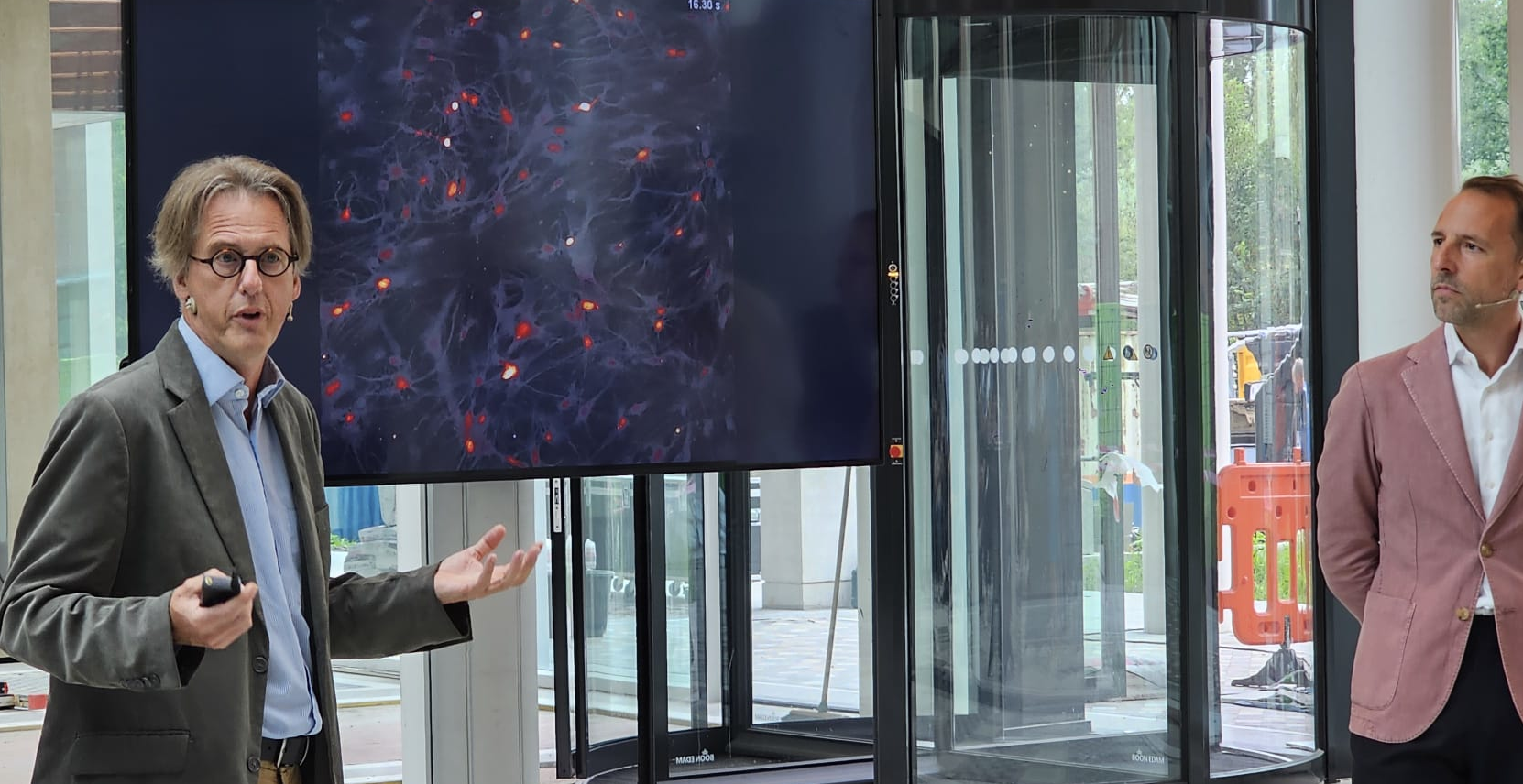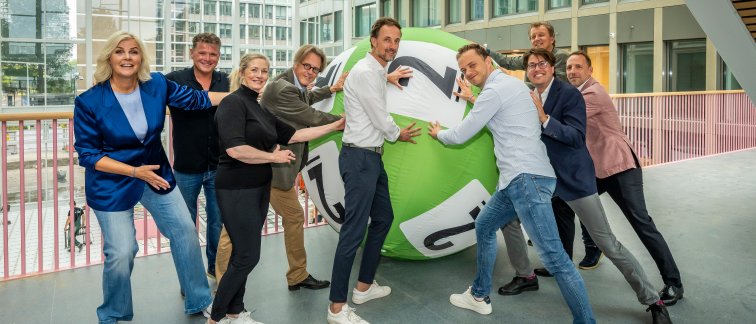How can neuroscientists and cancer researchers learn from each other?
Cells communicate extensively. In cancer, disruption of this communication can lead to cell proliferation and the unwanted spread of cells through the body, whereas in neurodegenerative diseases, cell communication becomes impaired and eventually lost, leading to cell death. Additionally, in both disease areas, the immune system may play an active role. Therefore, cancer biologists and neuroscientists can investigate shared molecular mechanisms. Furthermore, there is a strong rationale for collaboration, given the shared use of expensive instruments and the similar challenges in drug development. ADORE can make a real difference in advancing research and facilitating new therapy designs.
How and where will researchers collaborate?
ADORE is based on the efforts of more than 2,000 researchers from Cancer Center Amsterdam and Amsterdam Neuroscience in and around Amsterdam UMC (location VUmc) and the campus of the Vrije Universiteit Amsterdam. The new Research & Diagnostics Center building of Amsterdam UMC will become the beating heart of the largest onco-neuro research-dedicated campus in the world. This research building is nearly finished and is expected to be completed in October 2024. Oncology and neuroscience researchers will combine their knowledge, expertise and skills, not only in this new ADORE building, but also in other buildings on the campus: the O|2 Lab building, Imaging Center and the new VU research building. We welcome creative thinking and regularly discuss potential projects in our so-called Focus Groups. So,if you see potential, join us, because together we can make a difference!
What does the onco-neuro collaboration mean for patients?
There is a straightforward goal for ADORE: provide effective, personalized diagnosis and treatment for every patient. By working together, we aim to achieve breakthroughs more quickly to help people with cancer and brain diseases such as various forms of dementia and MS.
How will ADORE develop over the next 10 years?
ADORE is unique as it attracts a spectrum of funders, including private sponsors, who are strongly committed to securing long-term funding. Given that timelines for new therapy design and drug development often exceed standard funding periods, it is a significant advantage to have commitment over a period of at least 10 years. With this setup, we anticipate including an increasing number of longer-term research projects within ADORE, specifically aligned with successfully generating patient-subgroup diagnostics and therapies.

Geert Kazemier (Oncological Surgeon at Amsterdam UMC) and Jort Vijverberg (Neurologist at Amsterdam UMC, Alzheimer Center) are the General Directors of ADORE, and Maarten Bijlsma (Scientific Director of Cancer Center Amsterdam) and Guus Smit (Chairman of Board of Directors of Amsterdam Neuroscience) are the Scientific Directors of ADORE.
For more information visit the new ADORE website (in Dutch).
Picture by Wendy van Bree

